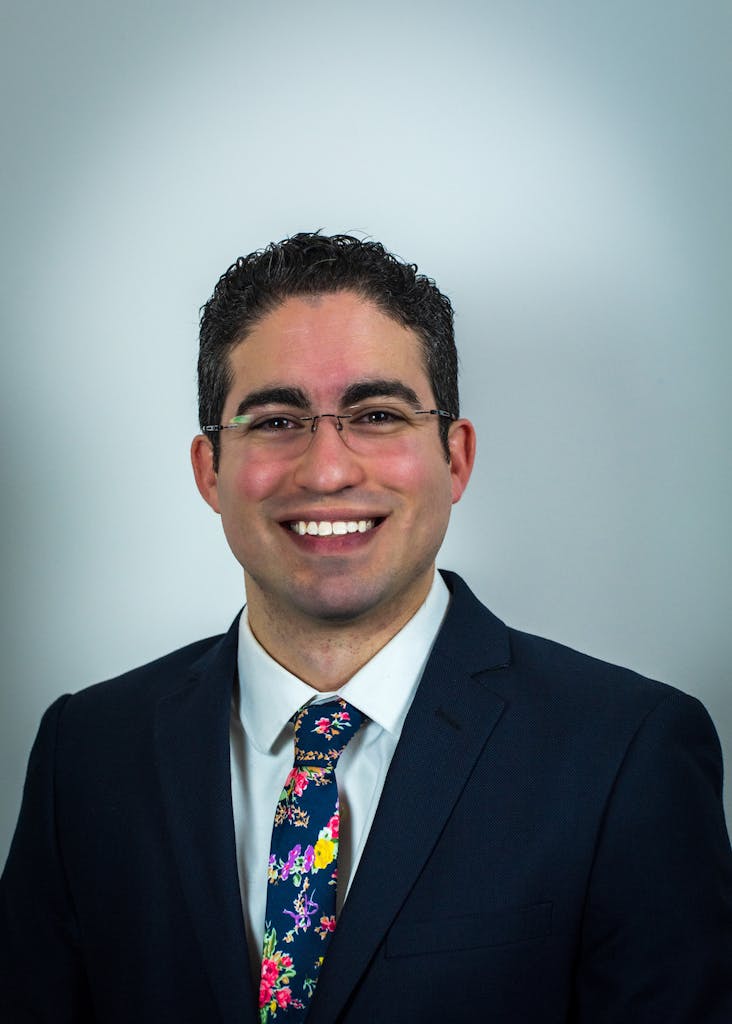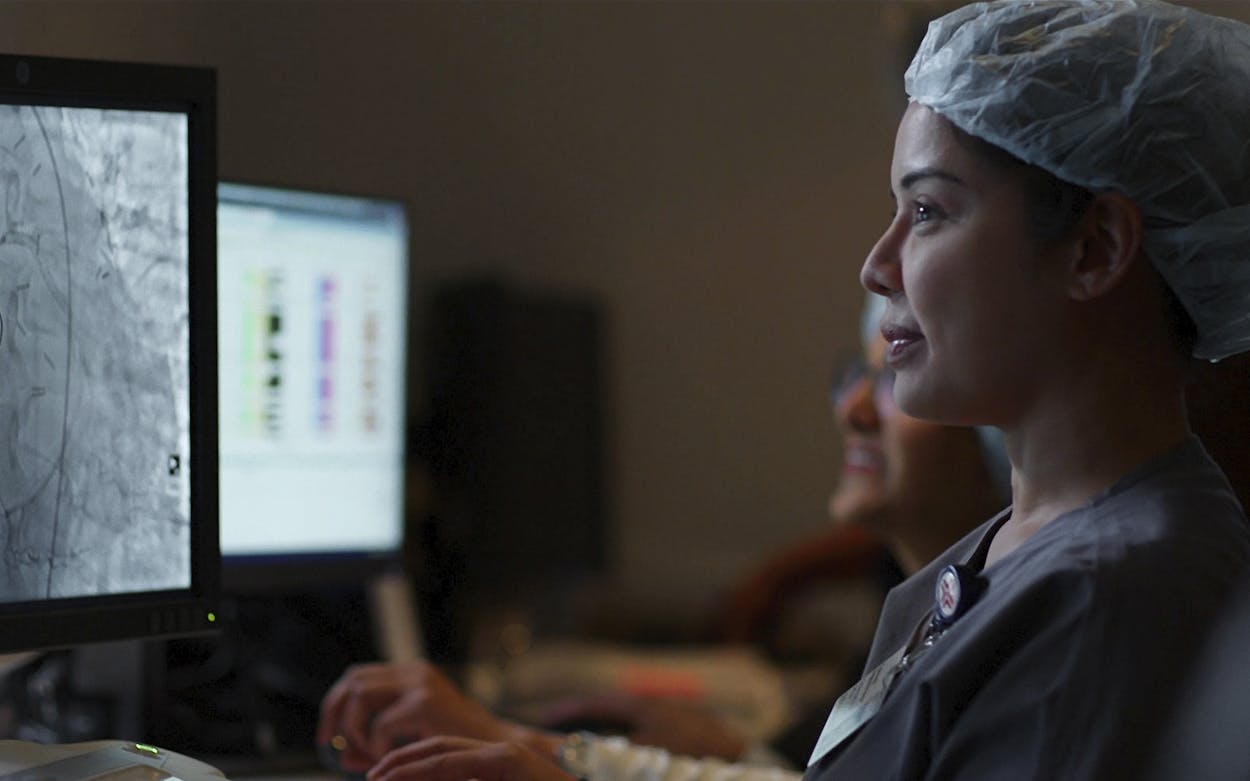Dr. Carlos Encarnacion, a cardiothoracic surgeon at HCA Houston Healthcare, has helped lead the way in cardiovascular care by introducing advanced minimally invasive surgical procedures aimed at safely and effectively improving patients’ quality of life.
A part of HCA Healthcare since August 2019, Dr. Encarnacion joined Houston Heart, a practice group of the industry’s leading cardiovascular professionals, in April 2020 to help take their cardiovascular surgery program to new heights.
One way he is doing this is through advanced surgical techniques for patients with valve disease.
“Most patients who need this procedure have heart failure or are on the cusp of heart failure, and their cardiologist has noticed that their leaky valve has progressively gotten worse,” says Dr. Encarnacion. “At this point, these patients may need surgical intervention to repair or replace poorly working valves.”
People with heart valve disease may experience symptoms such as shortness of breath, swelling of the legs, a heart murmur, or fatigue. Heart valve disease may be congenital or a result of a leaky or tight valve.
Traditionally, patients who need surgical intervention to repair or replace the mitral valve or tricuspid valve would undergo open-heart surgery, leaving them with a large incision and a lengthy recovery.
Dr. Encarnacion provides patients an alternative to traditional valve repair that can cut the recovery time by more than half. This minimally invasive surgical procedure helps get patients back to work and their normal activities sooner.

Most heart surgeries are performed by making an incision down the middle of the chest and breaking the sternum, or breastbone, in half. The surgery can take several hours to perform and patients need six to eight weeks to recover. This is not the case with the minimally invasive procedure.
“A lot of our patients who need valve repair come in looking for someone who will not split their sternum,” says Dr. Encarnacion. “We offer them a procedure that has a quicker recovery time of one to two weeks and minimal lifting restrictions. Our patients are able to feel liberated earlier.”
Dr. Encarnacion uses the minimally invasive, right mini-thoracotomy technique for tricuspid and mitral valve surgery. He makes a small incision between the ribs on the right chest, and is able to insert special surgical instruments through the incision to perform the valve repair or replacement. He can perform minimally invasive techniques for several procedures, including mitral valve repair and replacement, tricuspid valve repair and replacement, atrial septal defect repair, and MAZE procedure for atrial fibrillation and atrial myxomas.
Because this technique involves a smaller incision, patients generally have fewer complications and also benefit from smaller, less noticeable scarring.
Using this same incision, Dr. Encarnacion can treat mitral valve regurgitation, a condition in which the heart’s mitral valve doesn’t close properly, allowing leakage of blood backwards through the mitral valve. He treats this by reconstructing or replacing chordae tendineae, the fibrous tissue which attach the tricuspid and mitral valves of the heart to the papillary muscles, with artificial chordae.
Minimally invasive heart surgery is a complex surgical procedure that requires training and experience. Dr. Encarnacion has six years of cardiothoracic surgery training and has worked with and been mentored by some of the nation’s top cardiothoracic surgeons.
Most people with valve disease are eligible for minimally invasive heart surgery and surgeons may order a computed tomography angiography (CTA) of the chest, abdomen, and pelvis to determine suitability. Ultimately, patients and their surgeons must decide together if this is the right treatment option for their condition.
Learn how we put our power behind patient-focused heart care at 11 heart care locations across the Greater Houston area.






